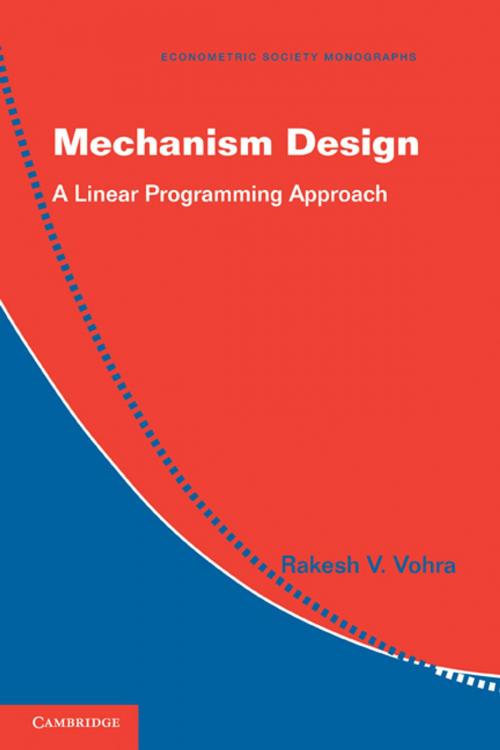Mechanism Design
A Linear Programming Approach
Business & Finance, Economics, Microeconomics, Nonfiction, Science & Nature, Mathematics| Author: | Rakesh V. Vohra | ISBN: | 9781107714236 |
| Publisher: | Cambridge University Press | Publication: | May 9, 2011 |
| Imprint: | Cambridge University Press | Language: | English |
| Author: | Rakesh V. Vohra |
| ISBN: | 9781107714236 |
| Publisher: | Cambridge University Press |
| Publication: | May 9, 2011 |
| Imprint: | Cambridge University Press |
| Language: | English |
Mechanism design is an analytical framework for thinking clearly and carefully about what exactly a given institution can achieve when the information necessary to make decisions is dispersed and privately held. This analysis provides an account of the underlying mathematics of mechanism design based on linear programming. Three advantages characterize the approach. The first is simplicity: arguments based on linear programming are both elementary and transparent. The second is unity: the machinery of linear programming provides a way to unify results from disparate areas of mechanism design. The third is reach: the technique offers the ability to solve problems that appear to be beyond solutions offered by traditional methods. No claim is made that the approach advocated should supplant traditional mathematical machinery. Rather, the approach represents an addition to the tools of the economic theorist who proposes to understand economic phenomena through the lens of mechanism design.
Mechanism design is an analytical framework for thinking clearly and carefully about what exactly a given institution can achieve when the information necessary to make decisions is dispersed and privately held. This analysis provides an account of the underlying mathematics of mechanism design based on linear programming. Three advantages characterize the approach. The first is simplicity: arguments based on linear programming are both elementary and transparent. The second is unity: the machinery of linear programming provides a way to unify results from disparate areas of mechanism design. The third is reach: the technique offers the ability to solve problems that appear to be beyond solutions offered by traditional methods. No claim is made that the approach advocated should supplant traditional mathematical machinery. Rather, the approach represents an addition to the tools of the economic theorist who proposes to understand economic phenomena through the lens of mechanism design.















